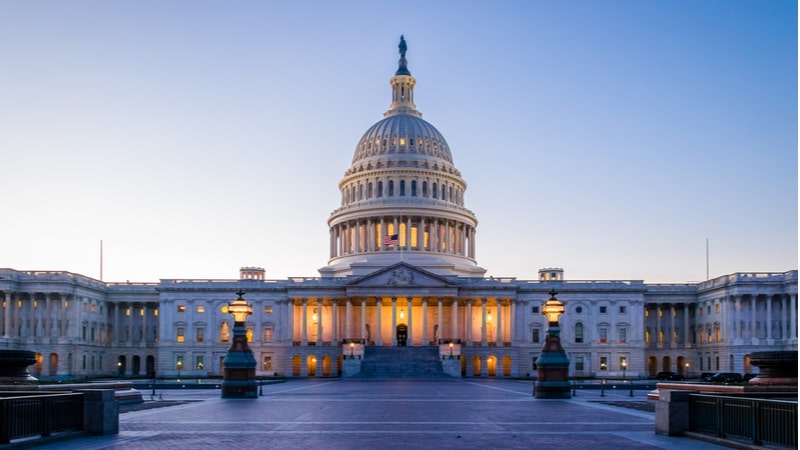
The Senate Homeland Security and Governmental Affairs Committee approved several legislative measures during a mark-up session on March 30 that would kickstart satellite sector cybersecurity efforts, aim to boost Federal agency healthcare security, and improve government contracting processes.
First, the committee voted unanimously to approve the Preventing Organizational Conflicts of Interest in Federal Acquisition Act, introduced by Sens. Gary Peters, D-Mich., Chuck Grassley, R-Iowa, Maggie Hassan, D-N.H., and Joni Ernst, R-Iowa. The measure would require Federal contractors to disclose other business relationships with entities that conflict with the work that a Federal agency has hired them to do.
Then, the committed vote to approve two amended cybersecurity bills.
The amended version of the Satellite Cybersecurity Act would require the U.S. Comptroller General to study how effectively the Federal government is supporting satellite infrastructure owners and operators in defending their systems and hardware from malicious hackers. The bill also directs the Comptroller General to deliver a report on how Federal agencies are providing support in this arena. The report would be written in coordination with the departments of Homeland Security and Defense, the National Institute for Standards and Technology, the Federal Communications Commission, the National Oceanic and Atmospheric Administration, and the Federal Aviation Administration.
The committee also passed an amended version of the Healthcare Cybersecurity Act of 2022, which would require the Department of Health and Human Services and the Cybersecurity and Infrastructure Security Agency to enter into a collaborative agreement around improving cybersecurity in the healthcare and public health sectors.
Members of the committee also voted to approve the Periodically Listing Updates to Management (PLUM) Act of 2022. The bill aims to increase the transparency of senior government leadership, and calls on the Office of Management and Budget to set up and maintain a publicly available online directory of senior government leaders.
Sen. Tom Carper, D-Del., a sponsor of the bill, said that approving the PLUM Act is a sign of good governance. However, Sens. Josh Hawley, R-Missouri, Rob Portman, R-Ohio, and Rick Scott, R-Fla., raised privacy concerns and ultimately voted not to approve the bill.
“The PLUM Act has raised serious privacy concerns for Federal political appointees and I can only support the bill if it is amended to lengthen the reporting period required by the bill,” Sen. Portman stated in his objection to the bill.
